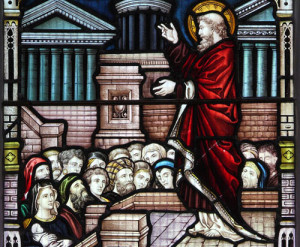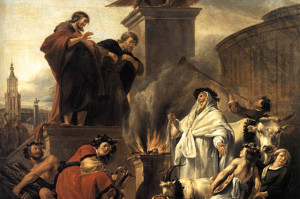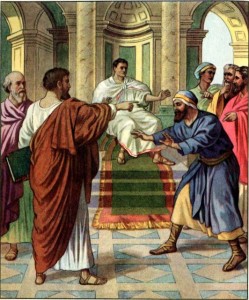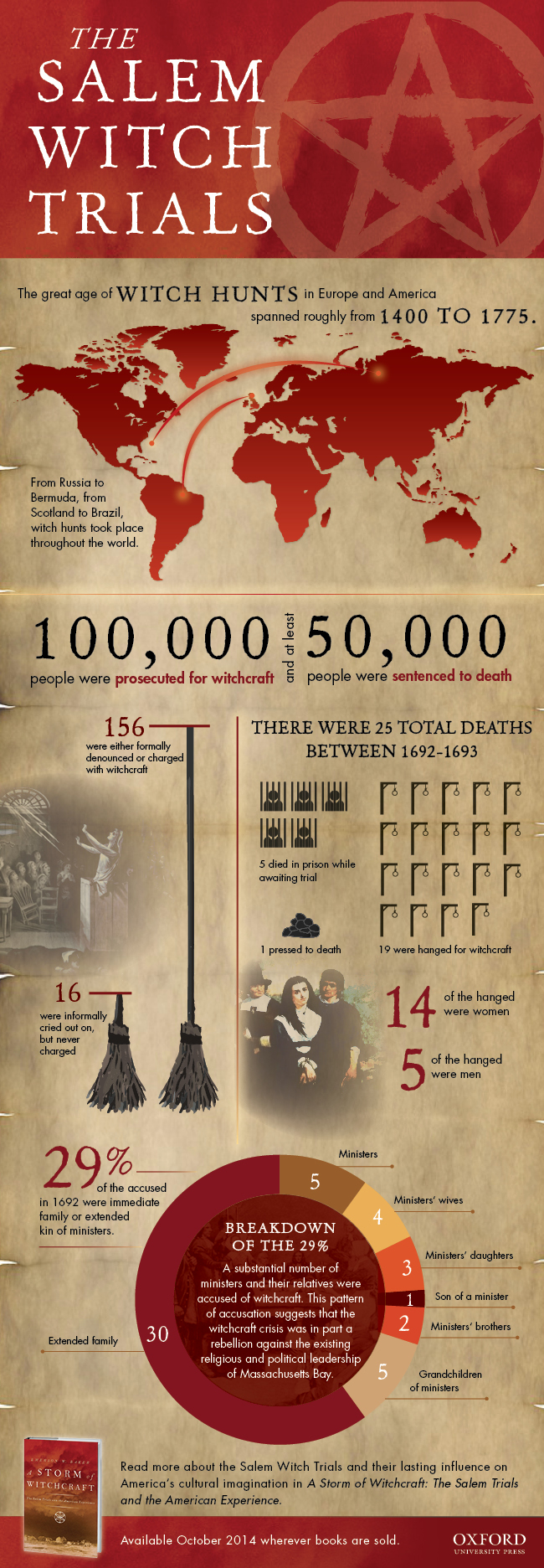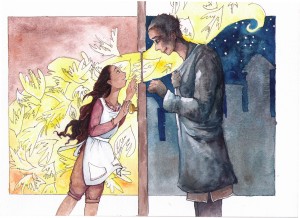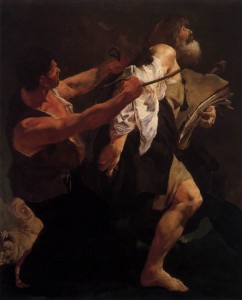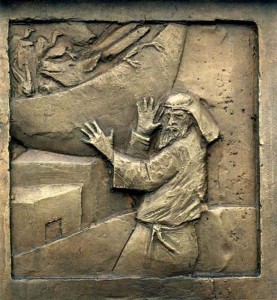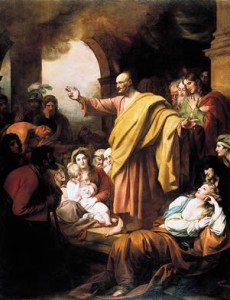1 Now at Iconium they entered together into the Jewish synagogue and spoke in such a way that a great number of both Jews and Greeks believed. 2 But the unbelieving Jews stirred up the Gentiles and poisoned their minds against the brothers. 3 So they remained for a long time, speaking boldly for the Lord, who bore witness to the word of his grace, granting signs and wonders to be done by their hands. 4 But the people of the city were divided; some sided with the Jews and some with the apostles. 5 When an attempt was made by both Gentiles and Jews, with their rulers, to mistreat them and to stone them, 6 they learned of it and fled to Lystra and Derbe, cities of Lycaonia, and to the surrounding country, 7 and there they continued to preach the gospel. 8 Now at Lystra there was a man sitting who could not use his feet. He was crippled from birth and had never walked. 9 He listened to Paul speaking. And Paul, looking intently at him and seeing that he had faith to be made well, 10 said in a loud voice, “Stand upright on your feet.” And he sprang up and began walking. 11 And when the crowds saw what Paul had done, they lifted up their voices, saying in Lycaonian, “The gods have come down to us in the likeness of men!” 12 Barnabas they called Zeus, and Paul, Hermes, because he was the chief speaker. 13 And the priest of Zeus, whose temple was at the entrance to the city, brought oxen and garlands to the gates and wanted to offer sacrifice with the crowds. 14 But when the apostles Barnabas and Paul heard of it, they tore their garments and rushed out into the crowd, crying out, 15 “Men, why are you doing these things? We also are men, of like nature with you, and we bring you good news, that you should turn from these vain things to a living God, who made the heaven and the earth and the sea and all that is in them. 16 In past generations he allowed all the nations to walk in their own ways. 17 Yet he did not leave himself without witness, for he did good by giving you rains from heaven and fruitful seasons, satisfying your hearts with food and gladness.” 18 Even with these words they scarcely restrained the people from offering sacrifice to them.
I would like to tell you a story of two different preachers. The first is a modern preacher who is preaching this very morning at his very large church in another state. Over the last year some interesting and unsettling things have come out about this preacher and his efforts to foster a sense of devotion to him among the members of his church.
For instance, images of pages from a coloring book that the children of the church color in their Sunday School classes have recently come to light. This coloring book was produced by the church. One page has a picture of the pastor preaching before a group of people. The children are to color in the pastor and the people watching him. Above the picture is the word “Unity.” The words below the header and on the bottom of the page are disconcerting. It says, “We are united under the visionary.” Under this it quotes Romans 13:1: “Everyone must submit himself to the governing authorities.” (I will point out that while there are other passages that speak of a kind of authority for pastors, Romans 13:1 is normally interpreted as referring to the state authorities.) On the bottom of the page are these words: “_______ Church is built on the vision God gave Pastor _______. We will protect our unity in supporting his vision.” Another page has a picture of this pastor standing beside another well-known pastor. In addition to informing the children that their pastor spent some time with this other famous pastor, this page asks them to think about how they can honor those who are above them.
In addition to this, an image of a poster that hangs in the offices of this church is entitled, “Reasons _______ Church is the Best Place to Work.” Among the numbered reasons on the poster are the following:
1. We serve a Lead Pastor who seeks and hears from God.
3. We serve a Lead Pastor we can trust.
7. We serve a Lead Pastor who pours into us spiritually and professionally.
16. We serve a Lead Pastor who goes first.
I share the concerns of other observers who worry what this kind of emphasis on the pastor and honoring the pastor and obeying the pastor means for this church. Christian history is full of charismatic leaders who were given too much authority and too much honor. In the end, everybody loses.
On the other hand, let me tell you about another pastor. This pastor was named Robert Nichols. He and his wife and son and daughter lived in a small southern town where he served as the pastor of a local church. Shortly after beginning as pastor, Nichols realized that the church clerk and her husband had a bit of a racket going. The clerk would collect the offerings, give all the cash to her husband, who would then deposit the money into his account and write the church a personal check for the amount. He would then count the amount of the checks he wrote as his tithe and claim huge tax deductions for this.
So pastor Nichols, wise to their scheme, fired this man’s wife and effectively ended their dishonesty. This gave rise to six years of terror in which the man, while still attending the church, besieged the pastor and his family with threatening letters and phone calls trying to run them out of town. In addition, he would act in a disruptive manner during worship services, trying to distract and unnerve the pastor while he was preaching. This gave way to the house getting shot-gunned on numerous occasions as well as dynamited a number of times over this six year period.
The law was called and an ATF agent was assigned but, amazingly, they could not stop the harassment or assaults. Ultimately, this powerful church member lied to a local drunk and told him that the pastor was having an affair with his wife and should be killed. This led the man to enter the parsonage, shoot and kill the pastor’s wife, and seriously maim the pastor. The grief stricken pastor would spend the remainder of his days in and out of mental facilities until he died in his late 40’s. Many of you will be familiar with this story because you have read the book written by the pastor’s daughter entitled The Devil in Pew Number Seven.[1]
Now, why would I tell you these two stories: one concerning a pastor who is being given too much honor and devotion and the other about a pastor who faced horrifying opposition? It is because the Church has faced both of these reactions throughout the ages: undue glorification and undue persecution. Both are very real challenges and both are present in our passage this morning.
Let us consider these realities in Acts 14:1-18. We join Paul and Barnabas as they continue their missionary journey by traveling to Iconium.
The early believers were tough, persistent, witness-bearers faced with serious opposition.
Paul and Barnabas entered Iconium and, as was their custom, went first to the synagogues to preach.
1 Now at Iconium they entered together into the Jewish synagogue and spoke in such a way that a great number of both Jews and Greeks believed. 2 But the unbelieving Jews stirred up the Gentiles and poisoned their minds against the brothers.
So many believed but many did not. This, too, was customary for Paul’s ministry. William Larkin points out that the phrase “stirred up the Gentiles and poisoned their minds” literally means “made their souls evil against” the brothers and that this implies they preyed on their feelings and not their intellects since “the ‘soul’ is that inward place of feeling that may be influenced by others.”[2]
Perhaps you have experienced this in your own efforts to reach people with the gospel. Oftentimes the opposition we receive is not grounded in conviction or sound arguments but only in an emotional aversion to the gospel. This seems especially to be the case with prominent critics of Christianity: they make arguments against Christianity that tap into emotion-driven stereotypes of irrational fears and rarely engage the essence of the gospel itself.
Regardless, those Jews who did not believe stirred up opposition to Paul and Barnabas. What Luke next tells us is fascinating.
3 So they remained for a long time, speaking boldly for the Lord, who bore witness to the word of his grace, granting signs and wonders to be done by their hands. 4 But the people of the city were divided; some sided with the Jews and some with the apostles. 5 When an attempt was made by both Gentiles and Jews, with their rulers, to mistreat them and to stone them, 6 they learned of it and fled to Lystra and Derbe, cities of Lycaonia, and to the surrounding country, 7 and there they continued to preach the gospel.
The opening words of verse 3 are powerful and convicting: “So they remained for a long time.” What makes them so powerful are the words of verse 2 that they follow: “But the unbelieving Jews stirred up the Gentiles and poisoned their minds against the brothers.” Thus, Paul and Barnabas receive opposition, “so they remained for a long time.”
It is humorous watching some New Testament scholars struggle with verse three and suggest that it must be a later scribal addition to the text since it does not appear logically to follow verse two. After all, who in their right mind would stay in a place for a long time because they were being opposed? Answer: those people who know that the reason why they are being opposed is the message that those opposing them most need to hear.
The point is not that Paul and Barnabas never left a place. We have seen them leave towns and escape towns before. The point is that they did not do so haphazardly and they certainly did not do so because they did not want to experience pain or persecution. While they did avoid being killed on numerous occasions, they clearly demonstrated that they were willing to be killed for the gospel when and if the Lord should decide that this needed to happen.
The early believers were tough, persistent, witness-bearers faced with serious opposition. They had grit. They had resolve. They had determination. They had a fierce singularity of purpose: the exaltation of Christ and His gospel and the advance of the Kingdom of God. They had counted the cost and had determined that the gospel was worth suffering for.
“So they remained for a long time…”
Do we? Do you? Do I?
Here is evidence that the importance of the gospel has taken root in our lives: when we are willing to take the arrows for speaking the truth. Is there a time to shake the dust from our feet? Yes. God will make it clear when it is time for us to move on after boldly proclaiming the truth of the gospel. But let us be clear: that time will not often come before we pay a personal price for Christ Jesus. This was the approach of the early missionary Church. It must be our approach as well.
The early believers gave all the glory to God whenever misguided people tried to make too much of them.
The early Church faced some staunch opposition and persecution, but pendulums swing both ways, and, in their next city, Lystra, they faced the opposite: the misguided worship of the people.
8 Now at Lystra there was a man sitting who could not use his feet. He was crippled from birth and had never walked. 9 He listened to Paul speaking. And Paul, looking intently at him and seeing that he had faith to be made well, 10 said in a loud voice, “Stand upright on your feet.” And he sprang up and began walking.
Here we find a miracle that is a typical New Testament miracle…if miracles can ever be called typical! Jesus healed the paralytic man in the beginning of Matthew 9 and He healed the paralytic man who was lowered down from the roof in the beginning of Mark 2 and he healed the lame man by the Pool of Bethesda in the beginning of John 5. In Act we saw God use Peter to heal a lame man in the beginning of Acts 3. And here God works through Paul and Barnabas to heal this man who cannot use his feet.
Whereas we might expect such a miracle to bring division and some measure of opposition, we find a most unusual reaction in Lystra.
11 And when the crowds saw what Paul had done, they lifted up their voices, saying in Lycaonian, “The gods have come down to us in the likeness of men!” 12 Barnabas they called Zeus, and Paul, Hermes, because he was the chief speaker.
Oh my! The gathered crowds look at Paul and Barnabas and claim that they are gods, specifically the gods Hermes and Zeus respectively. Paul was likely called Hermes because Hermes was “the Greek god of oratory and the inventor of speech” and Barnabas may have been called Zeus “because of an ancient legend found in their region that Zeus and Hermes had once descended to earth in human guise.”[3] James Montgomery Boice has offered a summary of this legend.
According to Ovid’s story [Metamorphoses], Zeus and Hermes had once visited a valley near Lystra. They went from door to door, but the people refused to take them in. Finally, they came to a poor house occupied by a man named Philemon…and his wife Baucis. These elderly people received Zeus and Hermes. So they stayed the night. In the morning the gods took the couple up out of the city to a mountain, and when they looked back on the valley they saw that the gods had flooded it, drowning everyone. Then, while they were looking on, Philemon and Baucis saw that the gods had transformed their poor hovel into a great temple with a glittering gold roof.[4]
Ben Witherington has provided some other interesting reasons why these people saw Paul and Barnabas as Hermes and Zeus.
An inscription has been found near Lystra with a dedication to Zeus of a statue of Hermes, another inscription speaks of priests of Zeus, an even more telling is a stone altar found near Lystra dedicated to the Hearer of prayer (i.e., surely Zeus) and to Hermes. The local Zeus, Zeus Ampelites, was portrayed on reliefs as an elderly man with a beard, and his companion (Hermes) as a young male assistant. The identification of Barnabas and Paul in these roles has led to the suggestion that the audience may have even thought these two resembled the familiar local reliefs of Zeus and Hermes. D.S. Potter thus concludes, “The passage is therefore of considerable importance as evidence for the physical appearance of Paul at this stage of his career.” At the least it probably suggests Barnabas was the elder of the two men and Paul was perhaps in his forties at most (cf. Acts 7:58).[5]
There are reasons, then, why these pagan people were predisposed to see these two men through whom this work of power had come as the gods Hermes and Zeus come among them. Of course, they were tragically misguided in this, as their efforts to honor Paul and Barnabas reveal.
13 And the priest of Zeus, whose temple was at the entrance to the city, brought oxen and garlands to the gates and wanted to offer sacrifice with the crowds. 14 But when the apostles Barnabas and Paul heard of it, they tore their garments and rushed out into the crowd, crying out, 15 “Men, why are you doing these things? We also are men, of like nature with you, and we bring you good news, that you should turn from these vain things to a living God, who made the heaven and the earth and the sea and all that is in them. 16 In past generations he allowed all the nations to walk in their own ways. 17 Yet he did not leave himself without witness, for he did good by giving you rains from heaven and fruitful seasons, satisfying your hearts with food and gladness.” 18 Even with these words they scarcely restrained the people from offering sacrifice to them.
The people try to offer sacrifice to Paul and Barnabas as incarnations of Hermes and Zeus. This is utterly terrifying to Paul and Barnabas. They cry out in horror and tear their garments, protesting that they are not gods but that instead they have come to point them to the one true God.
This business of receiving worship that is due God and God alone is a serious business. Do you recall what happened to Herod in Acts 12?
20 Now Herod was angry with the people of Tyre and Sidon, and they came to him with one accord, and having persuaded Blastus, the king’s chamberlain, they asked for peace, because their country depended on the king’s country for food. 21 On an appointed day Herod put on his royal robes, took his seat upon the throne, and delivered an oration to them. 22 And the people were shouting, “The voice of a god, and not of a man!” 23 Immediately an angel of the Lord struck him down, because he did not give God the glory, and he was eaten by worms and breathed his last.
Even then, Paul and Barnabas’ reaction is not fueled by some self-serving desire not to be struck down. No, their reaction is fueled again by a deep burden that these people need Christ and that these efforts to deify Paul and Barnabas reveal the distance that yet remained between these lost people and the Lord of life. Therefore, they refuse all the efforts of the people to make them the objects of worship.
Yes, the Church has historically been tempted by two extreme reactions to the gospel. The extreme reaction of persecution tempts the Church to despair or to quit or to lose courage. The extreme reaction of deifying the Church or enthroning some leader in the Church with undue praise or glorification tempts the Church to see itself as God or Godlike. Both of these temptations will lead to the ruin of the Church: the temptation to despair or the temptation to see itself as God.
It is therefore all the more shocking to see that some pastors still allow themselves to receive praise that should be directed only to God. For instance, a February 1, 2012, Christian Post article entitled “Video of __________ [a popular American pastor whose name I will omit] Being ‘Crowned King’ Leaves Viewers Confused” should give us pause.
A 14-minute video clip showing __________ of __________ Baptist Church being crowned by Rabbi Ralph Messer during one of the church’s televised services has gone viral, with members of the Christian community expressing complete confusion over the video…
The rabbi conducted something of a ritual during Sunday’s service at __________ that raised eyebrows across the Internet.
Messer offered __________ on air what he claimed was a 312-year-old priceless Hebrew scroll saved from the Auschwitz death camp after World War II. He then wrapped the __________ minister in it as mood-enhancing music played in the background, and called for __________ to be lifted up on a chair, similar to a throne. While __________ was being carried across the podium, Messer spoke of biblical kingship, which __________ was supposed to represent.
The rabbi went on to say that __________ sits now between two courts, the court of justice and the court of blessings. Worshippers in attendance applauded as __________ was ushered about in the air on the chair.
The meaning of __________ crowning as “king” has apparently been lost on the public, as those commenting on the online video have expressed confusion and skepticism.
Confusion and skepticism indeed.
The title “King” should be reserved for God alone, and no pastor and no Christian anywhere should allow themselves to become the object and focus of the adoration of the Church or the world. The motto of the Christian’s life should be the motto of John the Baptist’s life: “He must increase, but I must decrease” (John 3:30).
There is a powerful lesson in our text: do not be discouraged by opposition and do not be lured in by praise. The gospel will bring both reactions in unique and tempting ways. But what we must keep ever before our minds are two different reactions. The first is the reaction of those who will believe in Christ as a result of our witness. These who believe need for us to stay focused and stay clear in our hearts and minds. They need for us not to be distracted by either opposition or praise. They need to hear the word and see it lived out in the life of the Church!
And above that, a reaction that should matter above all others: God’s reaction. Paul and Barnabas stayed the course because they never forgot that they operated before an audience of one: the Lord Jesus. His pleasure with them was preeminent in their minds. They were unable to fear persecution or to be lured in by praise because they had fixed their gaze on the crucified and risen lamb who had come and was coming again.
May we do the same! May we never stop doing the same!
[1] https://www.cnn.com/SPECIALS/2011/terror.small.town/part1/
[2] William J. Larkin, Jr. Acts. The IVP New Testament Commentary Series. Vol.5. Grant R. Osborne, ser.ed. (Downers Grove, IL: InterVarsity Press, 1995), p.209.
[3] John B. Polhill, Acts. The New American Commentary. Vol.26. David Dockery, gen. ed. (Nashville, TN: Broadman Press, 1992), p.314.
[4] James Montgomery Boice, Acts. (Grand Rapids, MI: Baker Books, 1997), p.255.
[5] Ben Witherington III, The Acts of the Apostles: A Socio-Rhetorical Commentary. (Grand Rapids, MI: William B. Eerdmans Publishing Company, 1998), p.422.

